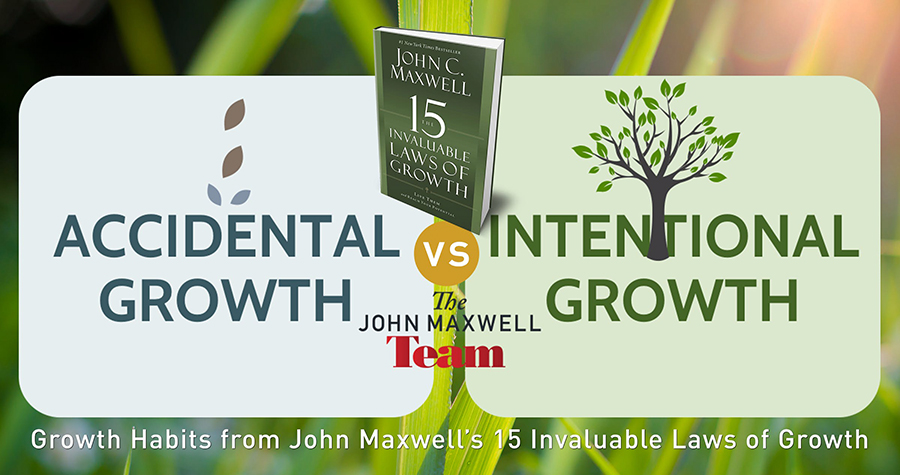Here we are, already a month into 2019! Isn’t it amazing how fast the days go by? By now, if statistics prove out, most folks who made New Year’s Resolutions have already slipped up. They may feel discouraged and defeated… even more so than before they made the resolutions in the first place.
Why?
Because making these kinds of resolutions, expecting immediate change, just sets us up for disappointment. We’re all creatures of habit, and creating new habits, new perspectives, and new lifestyles is a process. We will not achieve real, consistent growth just by flipping the page on our calendars and declaring the desire to be different.
Each one of us is capable of achieving our goals and finding success… It just won’t happen all at once. Personal growth is not like hitting the lottery. Personal growth requires a daily plan. Here are 6 questions to help you build your own Simple Daily Plan for Personal Growth. Ask yourself:
1 – Have I made a commitment to personally grow?
Success in any endeavor requires long-term commitment and a mindset that accepts this process as a journey, not a destination. There are going to be challenges, stresses, distractions, and setbacks. Our commitment is what keeps us going in spite of all the excuses to stop.
2 – Have I made my commitment to personal growth public?
Positive peer pressure is a tremendous motivator. When the people who love us and support our goals know about our commitments, they will encourage us to stick to it. These are often the folks who know us best, so they are most likely to know when we need a shoulder to support us or a motivating kick in the pants.
We also achieve greater success and make more specific progress when we share our commitments with a mentor, someone outside our circle who is further along in their journey toward where we want to be. These people have been where we are right now, and they know how challenging and rewarding the journey is.
The key here is to be intentional about who we choose as a mentor. We are inviting this person into our lives and our journeys, so we need to have specific reasons for the invitation and specific, mutually-understood boundaries on the relationship. Sometimes, when taking this step, doubt creeps in. We start to think a successful person would not have time for us or would not be interested in helping us. That’s just an example of limited thinking that stifles growth. When we are humble, direct, and willing to listen, people who have successfully moved beyond where we our in our journeys are often excited to invest their time and expertise in our success.
3 – Have I chosen two specific areas in which I want to grow personally?
To answer this question, consider both an area of skill and an area of choice. The “skill” is something we specifically want to learn or develop, such as leadership, finances, cooking, or carpentry. The area of choice is about attitude or perspective, about leaving behind limiting “stinkin’ thinkin’” and shifting our perspectives in a way that benefits and encourages our personal growth.
4 – Am I investing time, every day, in these two areas?
When teaching about developing a Simple Daily Plan for Personal Growth, John C. Maxwell suggests we invest one hour per day in each of the two areas we have chosen to focus on. When we take time, every day, to prepare, practice, and reflect, we will create progress we will see and be motivated to keep it up.
5 – Am I reflecting on what I am learning?
Each week, sit down and write out what you have learned. Begin with “Over the past seven days, this is how I’ve been preparing, what I’ve been practicing, and what I’ve learned through reflecting...”
Write it out. Journaling helps focus our intentions into action and enables us to look back on what we’ve learned to see our progress on days we feel discouraged.
6 – Am I celebrating my successes with someone?
All of us need encouragement, especially when we are growing. One of the most important reasons to share our commitment with people close to us and with a mentor, is so that we have people who are important to us to celebrate with.
This includes any success. We miss opportunities for encouragement when we allow our limited thinking to define what success “should be”. It’s not just a “huge step,” and it’s not “ achieving perfection.” Success is making progress, any step in the right direction, and any lesson we learn. We are all in a better place to achieve when we give ourselves permission to celebrate.
If this article encouraged or motivated you, I would love to hear from you. Drop me a line, here. And follow up with me each month… Let’s celebrate your successes together.
How one small shift can cause a breakthrough: A Case Study
Communication problems are one of the greatest causes of poor morale, lack of productivity and failure with any team. When a leader models intentional listening, that shift will inspire their team to follow that lead, increasing that team’s capacity for success with...
How Autocratic Leaders Kill Communication: A Case Study
Good leaders understand the necessity of healthy lines of communication with their team. Sometimes, though, we get in our own way, stifling what might otherwise be a dynamic environment. Why does this happen, and how would a shift in thinking lead to better...
My Friend Deepak: A story about lost opportunities and second chances
All of us have disappointed ourselves, fallen short of a goal or made a promise we didn’t keep. While we all need to do our best to walk in integrity, sometimes we are too slow to let go of our failures. Too slow to set them down and carry only the lessons learned...
From autocrat to influencer: making the shift
As a leader, is it more important to get things done, or to develop a group of people who get things done? Our initial answer to this question says a lot about which method of leadership we tend to prefer: autocratic or influential. In a previous article, we looked at...
Pitfalls of an autocratic approach: A real world case study
What’s the best approach to leadership? Is there a time when being an autocrat is better than being an influencer? Sooner or later, every leader will need to address these questions. Is there an answer that applies to every situation, or are there exceptions? Good...
Why influential leaders inspire questions instead of answering them
You see it in kung fu movies, science fiction sagas and old-fashioned hero quests. The young adventurer encounters the wizened sage, hoping to receive answers to the questions that launched him on his quest. After a moment of bemused silence, the sage responds to the...








0 Comments